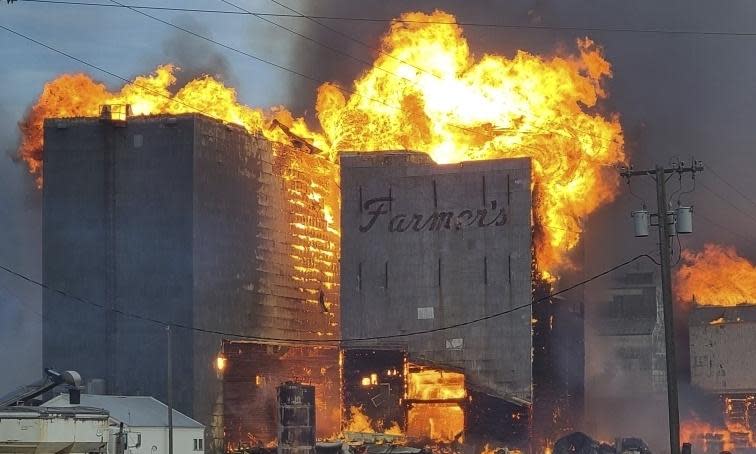Winter heatwave breaks records in four US states
A record-breaking heatwave has swept large parts of the US, with much of the country experiencing balmy conditions even as Americans move into what is supposed to be meteorological winter.
Much of the western half of the US has seen temperatures 35F (19C) above average for this time of year in the past days, with Wednesday bringing the hottest December weather on record for Montana, Wyoming, Washington state and North Dakota.
Parts of British Columbia in western Canada hit 72.5F (22.5C), tying the national record for the highest temperature ever recorded during December.
A series of state records have been tied or broken, with Jordan, Montana, hitting 78F, Hettinger, North Dakota, reaching 71F and Buffalo, Wyoming, getting to 78F.
Denver, Colorado, where temperatures have been about 30F above average, has not had any snowfall this season – the latest any measurable snow has settled on the city.
In some places the unusually warm temperatures have helped spur abnormally late wildfires, with flames roaring across the prairies of Montana, razing dozens of homes and incinerating farming equipment.
“It’s definitely not a good sign that it is this dry in December and this warm,” Brock Linker, a farmer and volunteer firefighter in Denton, Montana, told the New York Times. “We’ve had zero moisture since May and no sign of any in the future.”
The National Weather Service said that a “potent ridge of high pressure” has driven heat, forecasting that “record-breaking warmth” will continue across much of the southern plains and Rocky Mountain regions on Friday, before cooling this weekend.
Happy first day of meteorological winter!!! ❄️❄️❄️ Snow lovers who do not reside near the Great Lakes will have to wait a bit longer to see snowflakes, as above-average temperatures will dominate the country over the next several days due to a potent ridge of high pressure. pic.twitter.com/K6vDWR2INc
— NWS Weather Prediction Center (@NWSWPC) December 1, 2021
The climate crisis is causing longer, and more severe, heatwaves to reach all corners of the US, with this summer being the hottest ever recorded nationally.
It is winters, however, that are heating up more rapidly than summer, with researchers finding that winter is the fastest-warming season in 38 US states.
While warmer winters reduce cold-related deaths, they also prolong allergy seasons, help wildfires become more common and affect skiing and snowboarding through reduced snow.
Shrinking snowpacks also have a profound ecological impact, affecting wildlife that relies upon them and reducing the snow melt that forms much of the water carried by streams and rivers, contributing to what scientists say is the worst drought in the US west in the past 1,200 years.
Warmer temperatures also fails to kill off pests, such as the pine beetle, that decimate trees.

 Yahoo Finance
Yahoo Finance 

